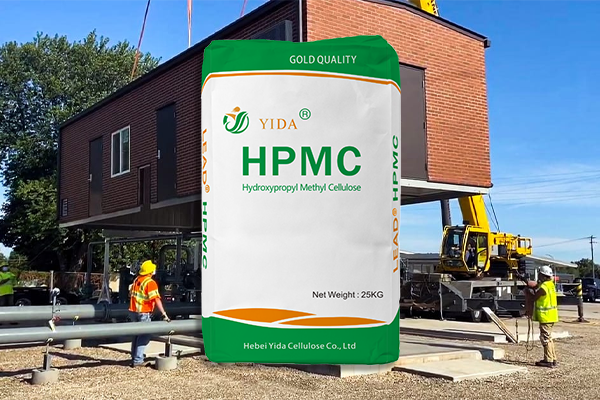Prefabricated buildings, also known as modular buildings, are rapidly gaining traction worldwide as a sustainable and efficient construction method. The prefabrication process involves manufacturing building components off-site in a controlled environment, which are then transported and assembled on-site. This method offers numerous advantages, including reduced construction time, cost savings, improved quality control, and minimized environmental impact.
In recent years, the demand for prefabricated buildings has surged due to urbanization, housing shortages, and the growing emphasis on green construction practices. Governments and private sectors are increasingly adopting prefabrication to meet the rising need for affordable and sustainable housing. For instance, in China, the government has been promoting prefabricated construction to address housing demands and environmental concerns. According to industry reports, the global market for prefabricated buildings is expected to grow significantly, driven by technological advancements and the need for efficient construction solutions.
Despite the numerous benefits, the prefabrication industry faces challenges such as logistical complexities, the need for specialized workforce training, and initial investment costs. However, advancements in construction materials and techniques are addressing these challenges, making prefabricated buildings a viable and attractive option for modern construction.

Hydroxypropyl Methylcellulose (HPMC) is a vital additive in the construction industry, particularly for prefabricated buildings. HPMC is a non-ionic cellulose ether made from natural polymer materials through a series of chemical processes. It is widely used in construction materials due to its excellent properties, such as water retention, thickening, adhesion, and film-forming abilities.
Water Retention: HPMC significantly enhances the water retention capacity of cement-based materials, which is crucial for prefabricated components. Proper water retention ensures adequate hydration of cement, leading to improved strength and durability of the prefabricated elements.
Improved Workability: The addition of HPMC improves the workability of mortar and concrete, making it easier to mold and shape prefabricated components. This property is particularly beneficial during the manufacturing and assembly processes, ensuring precise and consistent quality.
Enhanced Adhesion: HPMC enhances the adhesive properties of construction materials, ensuring strong bonding between different components. This is essential for the structural integrity of prefabricated buildings, where components need to be securely attached.
Consistency and Stability: HPMC contributes to the overall consistency and stability of construction mixtures, preventing segregation and ensuring uniformity. This leads to high-quality prefabricated elements that meet stringent construction standards.
Environmental Benefits: Using HPMC in prefabricated buildings aligns with green construction practices. It reduces water consumption and waste generation during the construction process, contributing to sustainability efforts.
Hebei Yida Cellulose Co., Ltd. is a leading Chinese manufacturer specializing in the production of Hydroxypropyl Methylcellulose (HPMC) for the construction industry. With a commitment to quality and innovation, Hebei Yida Cellulose has established itself as a trusted supplier of HPMC for various construction applications, including prefabricated buildings.
Located in Hebei Province, China, Hebei Yida Cellulose Co., Ltd. boasts state-of-the-art manufacturing facilities and a team of experienced professionals dedicated to producing high-quality HPMC. The company adheres to strict quality control measures, ensuring that their products meet international standards and deliver superior performance.
Hebei Yida Cellulose offers a range of HPMC products specifically designed for prefabricated buildings. Their HPMC enhances the performance of construction materials, ensuring the production of high-quality prefabricated components. The company’s HPMC products are known for their excellent water retention, workability, adhesion, and consistency, making them ideal for modern construction needs.
Hebei Yida Cellulose Co., Ltd. is committed to continuous innovation and sustainability. The company invests in research and development to improve the properties and applications of HPMC, aligning with the evolving needs of the construction industry. Their sustainable production practices and eco-friendly products contribute to the global effort towards green construction.
With a customer-centric approach, Hebei Yida Cellulose Co., Ltd. prioritizes the needs of their clients. The company provides tailored solutions and technical support to ensure optimal use of their HPMC products in prefabricated buildings. Their dedication to customer satisfaction has earned them a strong reputation in the industry.
The prospects for prefabricated buildings are bright, with the potential to revolutionize the construction industry. HPMC plays a crucial role in enhancing the quality and efficiency of prefabricated components, ensuring durable and sustainable construction. Hebei Yida Cellulose Co., Ltd., as a leading manufacturer of HPMC, is at the forefront of this transformation, providing high-quality products and innovative solutions to meet the demands of modern construction. As the industry continues to evolve, the collaboration between advanced materials like HPMC and innovative construction methods will pave the way for a more efficient and sustainable future.
Previous: Redispersible Polymer Powder: Ethylene-Vinyl Acetate Copolymer Emulsion
Next: Urea Formaldehyde Glue Manufactured Plant: A Comprehensive Overview
Copyright:@2020-2021
Comments Please sign in or sign up to post.
0
0 of 500 characters used